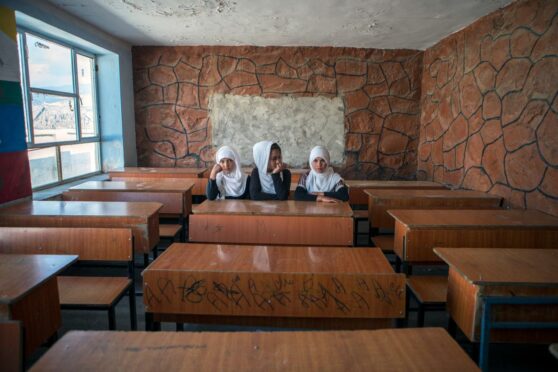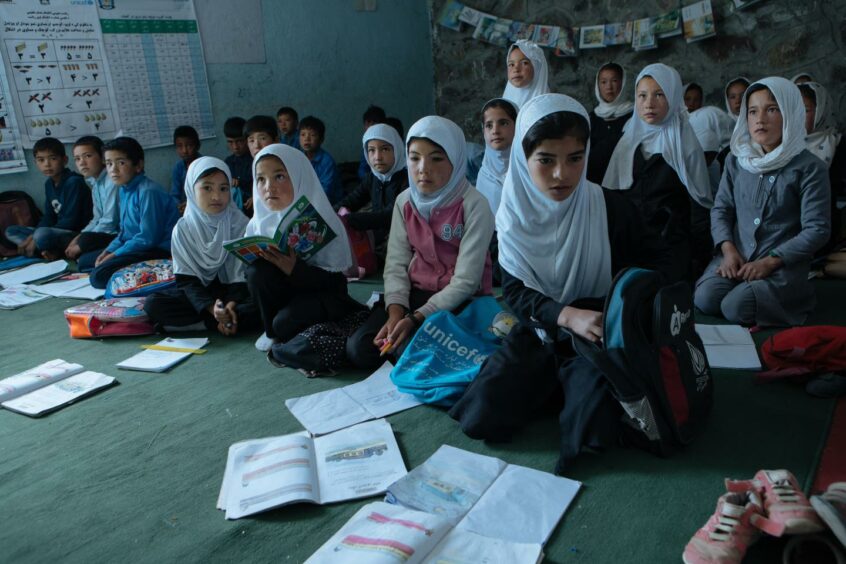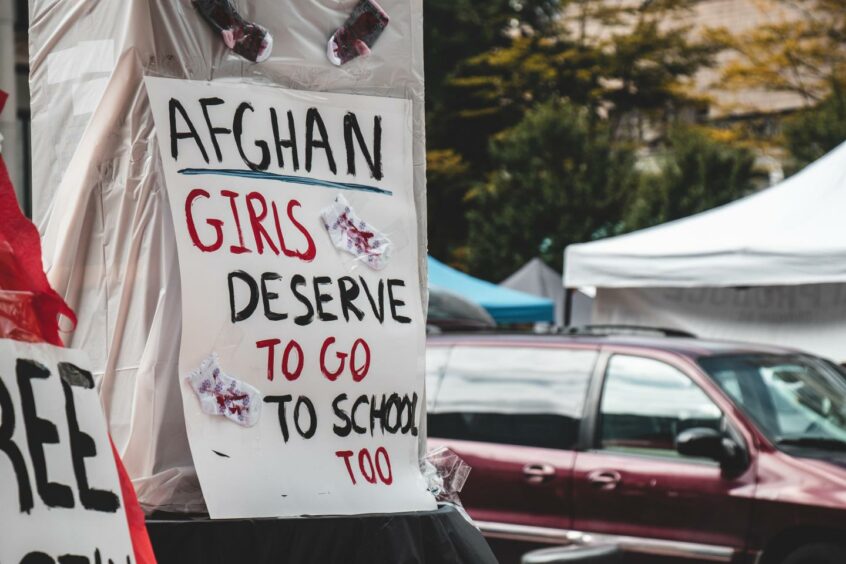The UK and Scottish governments need to do more to protect girls’ and women’s education in Afghanistan, a teaching union has said.
The Educational Institute of Scotland (EIS) has written to both Boris Johnson and Nicola Sturgeon to highlight the issue.
EIS general secretary Larry Flanagan has said that safety of students in Afghanistan is “severely threatened” by the Taliban.
When the Taliban took power following the withdrawal of American troops they instructed girls and young women to stay home from school.
Millions of people tried to flee the country following after US forces departed in August.
The Taliban had previously claimed their ban on girls’ education was temporary but this was questioned by Nobel Laureate Malala Yousafzai.
The Pakistani activist was shot in the head by a Taliban gunman in 2012 after campaigning for girls’ schooling.
Progress taking a backwards step
The EIS is also calling for what it calls “enhanced humanitarian assistance” for those who have fled Afghanistan.
Refugees started to arrive in the north-east in September and have already begun their new lives.
Mr Flanagan said the Taliban is “reversing” years of progress when it comes to education.
He also said that things are “getting worse” for girls who want to attend school.
Mr Flanagan said: “Despite recent assurances from the Taliban, Education International (EI) member organisations in Afghanistan are reporting that the situation is getting worse for women teachers and students, especially girls.
“The international community needs to act to ensure that the right to education for all is safeguarded and particular attention is given to decisions and policies impacting on girls and women in Afghanistan.
“The safety and security of all students and educators, especially girls and women are severely threatened.
“The Taliban government recently barred girls and women from attending secondary schools.”
Government has ‘moral responsibility’
In his letter to the prime minister, Mr Flanagan said the government in London has a “moral responsibility” to provide help to those who left Afghanistan.
He said it was important to support refugees after the UK’s involvement in the conflict in Afghanistan.
Mr Flanagan wrote: “It is the EIS view that the UK Government has a moral responsibility to provide humanitarian support, to facilitate rescue/resettlement and to provide asylum to Afghan refugees in light of our longstanding military operations in Afghanistan.”
What do the governments say?
A UK Government spokesperson said: “We strongly support the full and equal right of Afghan girls to education. We are working alongside international partners, to press the Taliban to ensure that girls are able to return to secondary school as soon as possible and that schools are protected as safe spaces for all.
“We have doubled our aid for Afghanistan this financial year to £286 million in order to provide life-saving aid, including to women and girls.”
The Scottish Government’s Secretary for External Affairs Angus Robertson said: “A tragedy is engulfing Afghanistan and Scotland is ready and willing to play our part in helping.
“The Scottish Government will not only provide humanitarian assistance, but is committed to playing a full role in assisting and welcoming the resettlement and relocation of Afghans at risk.
“The Scottish Government has made £600,000 available to the people of Afghanistan through the Humanitarian Emergency Fund, including donating £240,000 to the Disasters Emergency Committee for their appeal launched on December 15.
“This will provide crucial help to those desperately in need in the midst of this harrowing crisis. And this is in addition to the financial commitment the Scottish people already make to the UK’s aid budget through tax contributions.”
More from the Schools and Family team
North and north east councils prepared if schools are forced to close
Who decides when my child’s school should be closed?
Document sets out plans for possible return of online learning in schools


